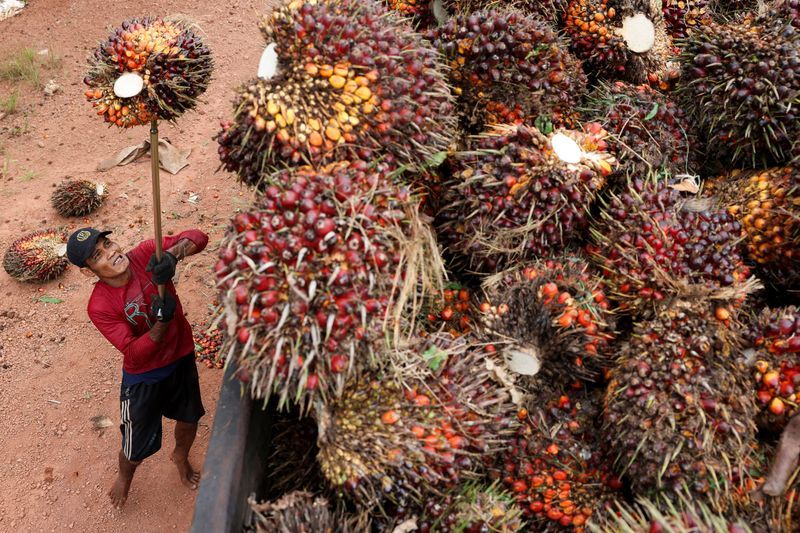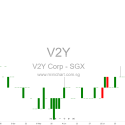SAMPIT, Indonesia (Reuters) -Indonesian soldiers in fatigues marched onto a private palm oil plantation on Borneo island in late June and posted a signboard declaring the estate under government control, its managers said.
The scene at the Melati Hanjalipan plantation exemplifies a sweeping military-backed takeover that has sent a chill through the world’s biggest palm oil producer and its 16-million-strong workforce.
Around 3.7 million hectares (9.1 million acres) of plantations have been seized, with nearly half transferred tonascent state firm Agrinas Palma Nusantara, catapulting it into the world’s largest palm oil company by land size.
The crackdown ordered by President Prabowo Subianto is the biggest structural change in Indonesia’s palm industry and has brought a total of 5 million hectares under military scrutiny. That is about 30% of the country’s total palm oil acreage and an area bigger than the Netherlands.
The territory could eventually be handed to Agrinas, a company industry experts say is ill-equipped to manage it.
The president’s office and Agrinas did not respond to Reuters requests for comment.
“We are determined that there will be no more corruption cases that cannot be investigated, no more untouchables,” Prabowo told his cabinet on Monday while listing the seizures as one of his most notable achievements since coming to power in October 2024.
COMPANIES UNDER SIEGE
Prabowo, a former special forces commander, has widened the military’s role in civic affairs, reviving fears of a return to Indonesia’s Suharto-era authoritarianism.
He has installed retired generals on Agrinas’ board and formed a task force of soldiers, police and prosecutors to target plantations operating inside areas designated as forest, a January presidential decree and the company’s website showed.
The task force, Indonesia’s defence ministry and the military did not respond to questions about the seizures.
Reuters interviews with a dozen company executives and growers across Indonesia and five industry watchers, including the sector’s most‑followed analysts, found widespread fear about their future operations and the impact of the crackdown on global supply.
For the first time, sources at three of Indonesia’s top palm oil producers said they have scaled back fertiliser use and routine upkeep in areas at risk of takeover – steps that can depress yields for seasons to come.
No company has publicly questioned the seizures or the formation of Agrinas and the executives requested anonymity for fear of government retaliation.
“If the government uses the military, the police, what can a company do? Who do we protest to? Do you think we dare?” one executive said.
The stakes are high for Indonesia, which accounts for over halfthe world’s production of palm oil and exports nearly $30 billion worth of the commodity annually, used in products from snacks and cosmetics to fuel and cooking oil.
Before the crackdown, industry group GAPKI predicted a slight rise in 2025 output to 53.63 million tons, but chairman Eddy Martono said the “uncertainty could lead to a decline” as early as late this year.






